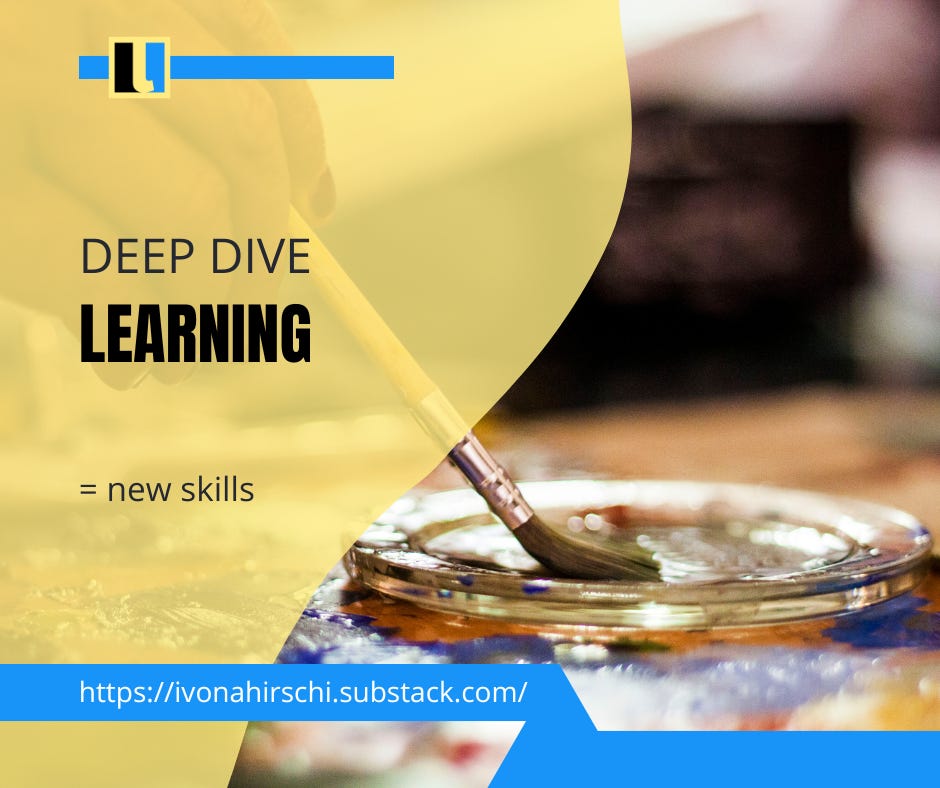Why do people care about lifelong learning, continuous learning, and a growth mindset?
Because they have to if they want to stay relevant in the job market. As tech advances and job roles shift, the skills that were once considered essential may become outdated.
Sigh.
Why did you study?
Today, you will learn why you should invest in learning new skills, how to do it on a budget, and, most importantly, how to advance your career to stay up-to-date and appealing to headhunters.
Contents:
The Importance of Skill Development
Practical Ways to Learn New Skills
Online Courses
Professional Development Programs
Networking
Self-Directed Learning
Enhance Collaboration and Teamwork
Overcoming Barriers to Learning
Strengthen Problem-Solving Abilities
Foster a Growth Mindset
Build a Strong Personal Brand
Wrap up
1. The Importance of Skill Development
I started university in 2008, studying sociology and economics. We spent six semesters talking about research methods and techniques.
Here’s a memory:
The professor spoke about conducting his first research using computers and showed slides on foils. It was fun listening to him. But was it relevant? No. When I graduated, research had already shifted to online platforms. And I’m not even talking about the client requirements for quality presentations—no more foils, of course. PowerPoint had taken over, something our professor wasn’t familiar with.
I felt strange leaving university only to start learning from scratch when I joined a corporate company. Yes, I had some basics. But what had we been doing during those five years of study?
The truth is, education matters. But it doesn’t prepare you for everything. I know people with MBAs who can't develop strategies. I know others who studied management but can’t manage people.
Now, with tech progression and remote work, we’re entering a whole new level where tech and soft skills come together. Finally!
The world is moving fast. Are you keeping up, or do you feel left behind?
The good news is that staying ahead doesn’t have to be overwhelming. With a growth mindset and a dedication to lifelong learning, you’ll thrive.
Here’s why investing in new skills is a game-changer:
a. Stay Ahead
Let’s face it: the workplace is constantly evolving. New technologies and methods can make yesterday’s skills seem outdated. Regularly learning new skills ensures you’re not just keeping up but staying ahead. It’s like having a secret weapon in your career arsenal.
b. Open New Career Opportunities
Ever dreamed of moving into a new role or getting a promotion? Expanding your skill set can make those dreams a reality. Whether it’s shifting to a different department or stepping into a leadership role, a diverse skill set makes you more versatile and attractive as a candidate.
c. Boost Job Performance and Satisfaction
Imagine being able to tackle tasks with ease because you’ve mastered a new tool or method. Learning new skills can directly improve your job performance and make work more enjoyable. It’s like adding new tricks to your toolkit—everything just runs smoother.
d. Strengthen Problem-Solving Skills
New skills often come with new challenges. Facing these challenges sharpens your problem-solving abilities. For instance, learning a new project management technique can lead to creative solutions and better decision-making.
e. Cultivate a Growth Mindset
When you dive into learning new skills, you’re not just adding to your resume; you’re fostering a growth mindset. This mindset—the belief that you can always develop your abilities through effort—helps you approach challenges with enthusiasm and resilience. You’ll never get bored!
Education and experience are valuable, but lifelong learning and adapting to new skills are essential to thriving in business. Hire people who want to learn, and your team will grow naturally.
Keep reading with a 7-day free trial
Subscribe to leadink to keep reading this post and get 7 days of free access to the full post archives.





